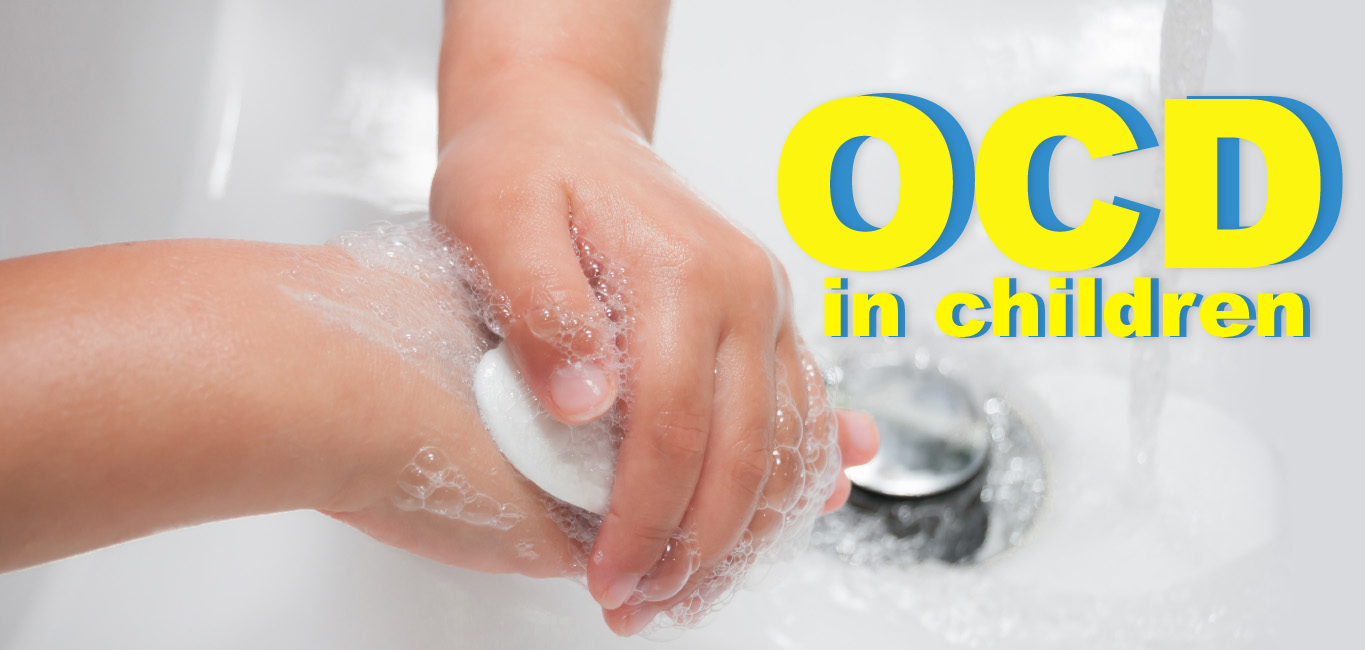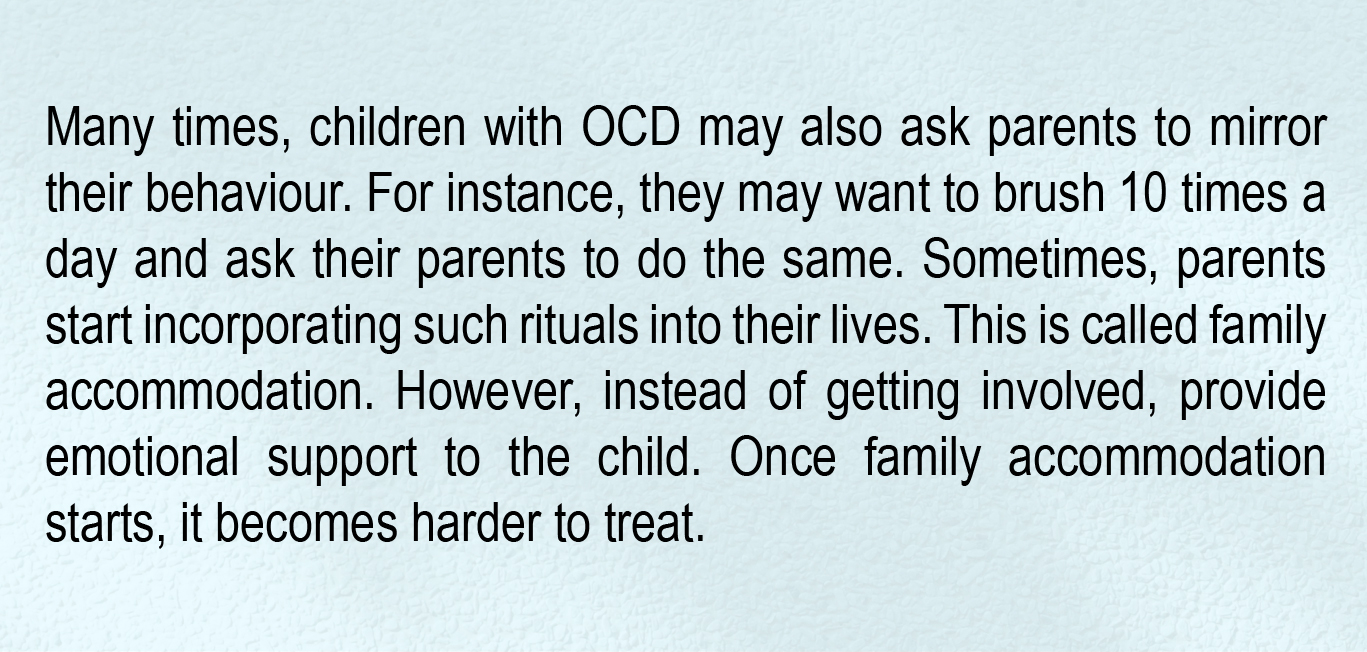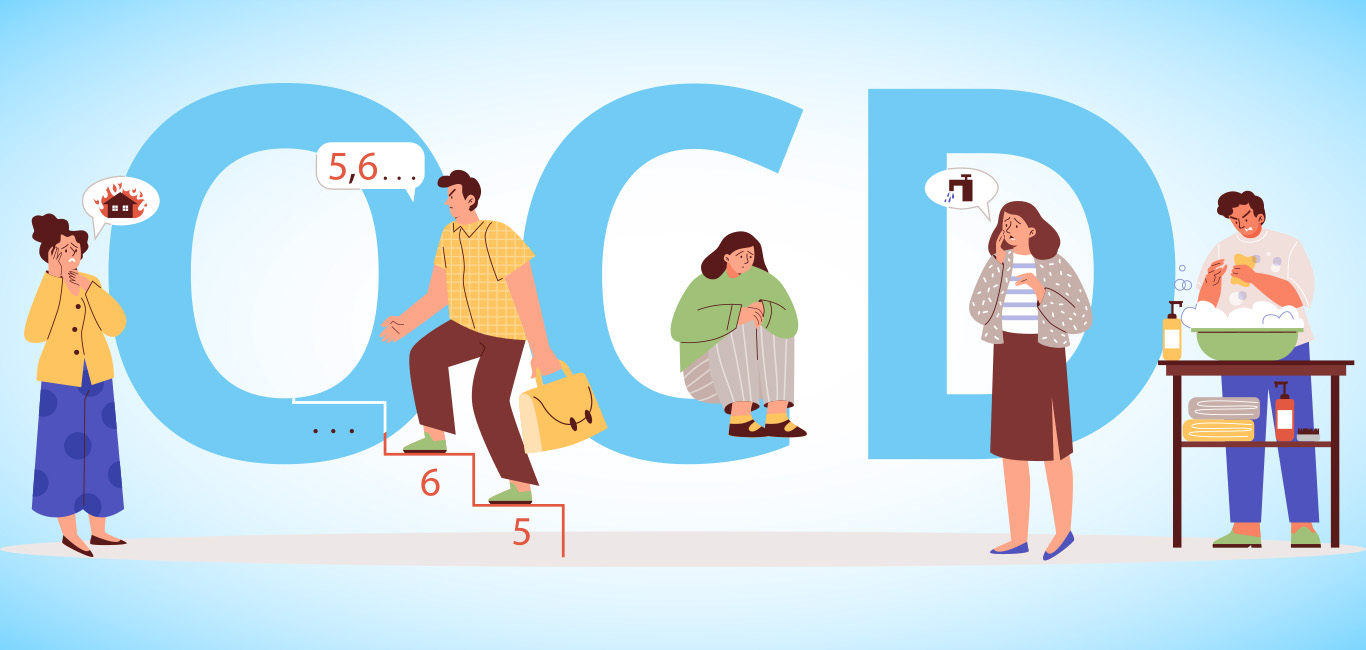
Worries, wonders, and repetitive behaviour are part of the normal developmental process of children. However, children with obsessive-compulsive disorder (OCD), despite their best efforts, cannot stop worrying. And those concerns frequently drive them to repeat the same behaviours.
Bengaluru’s Arav Sharma (name changed), studying in class six, obsessively cleaned his hands as he felt they were contaminated and would harm his family. The twelve-year-old also had a strong urge to make sure everything was secure, and repeatedly checked if the doors were locked and gas valves turned off.
At first, his parents did not take it seriously and thought he was just being responsible. His mother revealed that he would complain about his anxiety occasionally, but with time the frequency increased. Slowly, he started involving both his mother and younger brother in the cleaning rituals.
“We took him to a clinical psychologist, where he was diagnosed with OCD,” says Sharma. Later, his health significantly improved with the use of CBT (cognitive behavioural treatment) and ERP (exposure and response prevention).
Similarly, fifteen-year-old Pritham Jose (name changed) from Mysuru, used to believe that a particular part of his room was dirty and that he had to be exceptionally clean to protect himself and his family from injury. “I had to be really clean. If I walked barefoot in my house, I’d have to take a bath because I felt dirty,” he says. This would lead to hours of bathing and scrubbing, with no relief. “Even after taking a bath, I’d feel dirty and repeat the same process,” Jose recalls.
A psychologist diagnosed him with OCD. Jose is still receiving therapy, which has helped him cope with the situation much better.
To know more about OCD, read https://www.happiesthealth.com/articles/mental-health/ocd-overcoming-compelling-distress
First sign of OCD among children
Eesha Sharma, assistant professor, Child and Adolescent Psychiatry, National Institute of Mental Health and Neurological Sciences, Bengaluru lists out two sets of early signs:
- The child takes too much time to complete daily activities for no understandable reason.
- Repeats an activity, like washing, checking their belongings, and asking the same question for reassurance.
Distress is a common symptom of OCD. While children without OCD may eventually agree to be calmed down by their parents, it may be difficult to convince children with OCD to do so, and they may become visibly distressed. “This is a key distinction, as normal repetition in development does not usually cause distress, whereas it often does in children with OCD,” says Sharma.
Age of onset for childhood OCD
According to Sharma, “There are two peaks in OCD onset.” One peak occurs between the ages of eight and eleven, and another occurs during adolescence.” But she says that children of any age can develop OCD, including those between two and four.
Possible reason behind this illness
According to a recent study by a team of researchers led by trainee clinical psychologist and researcher, Anisha Kumar on OCD and parenting, published in the Journal of Psychiatry Spectrum, parenting styles play an important role in children developing Obsessive Compulsive symptoms.
First-born and only children may be more susceptible, especially in an Indian context, as parents may have higher expectations for them and may be overinvolved. Environmental stressors may also be a contributing factor, but it is important to note that the development of Obsessive Compulsive traits is often the result of multiple factors, including birth complications, traumatic events, genetics and other risk factors.
According to a 2019 study, other factors such as birth complications, traumatic events, genetics, and other risk facts might also lead to OCD.
Diagnosis
“Essentially a good clinical assessment is the cornerstone for the establishment of OCD,” says Sharma. She suggests the following clinical assessments to diagnose OCD in children:
- Including the history of the symptoms of presentation and a good developmental understanding of how the child is performing in all areas of life.
- Understanding whether the child has any medical problems, any family-related pathology, or a history of OCD in the family.
- Evaluating the child’s environment and family life to rule out other reasons for doing anything repeatedly.
- As children are great mimics, they like copying and imitating others. Repetition in OCD is not just a manifestation of copying the favourite character or parents but something pathological.

Illustration by Syalima Das
Therapy regimen
Treatment for OCD in children typically includes family-based cognitive behaviour therapy (CBT). As children may not fully understand the cognitive aspect of therapy, parents are educated on OCD who can then help their children change their behaviour. “Playful methods are used instead of mentioning the term OCD and both parents and children are actively involved in the therapy process. CBT is the focus of treatment,” says Sharma.
Role of parents and family members
Parents play a crucial role in therapy for children with OCD, especially for younger ones. The level of distress experienced by the child may determine the level of parental involvement needed. Parents should consult a medical professional if their child is not willing to participate, ensure regular follow-ups, and actively involve themselves in the therapy process. Overinvolvement by a parent can lead to anxiety and undesirable behaviour in the child and hinder their ability to cope on their own as they grow up.
Tips for parents
- If a child is diagnosed with OCD, a clinical psychologist should provide therapy.
- Understand that this behaviour is not to grab attention. It is coming from anxiety.
- Do not force the child to stop OCD-related behaviours, as this can increase the child’s distress.
- Both parents and the child should work together to understand and control OCD-related behaviour.
- Do not feel obliged to indulge in the same compulsive behaviour as the child, for instance bathing or cleaning rituals. Parents need to understand the trigger points and resolve them. For example, ask the child which part of the room is dirty and clean it together, rather than washing their hands or taking a bath.


















